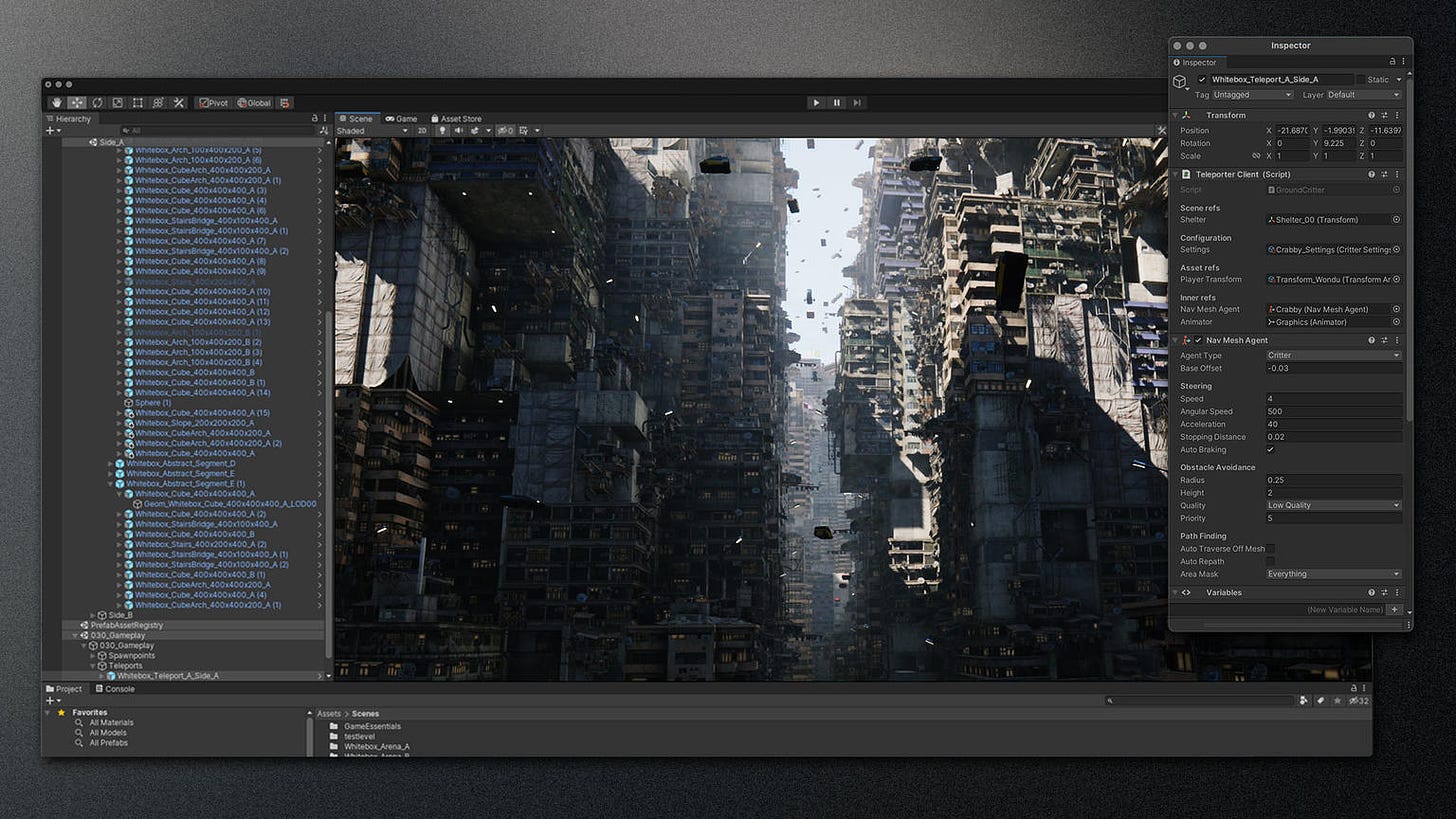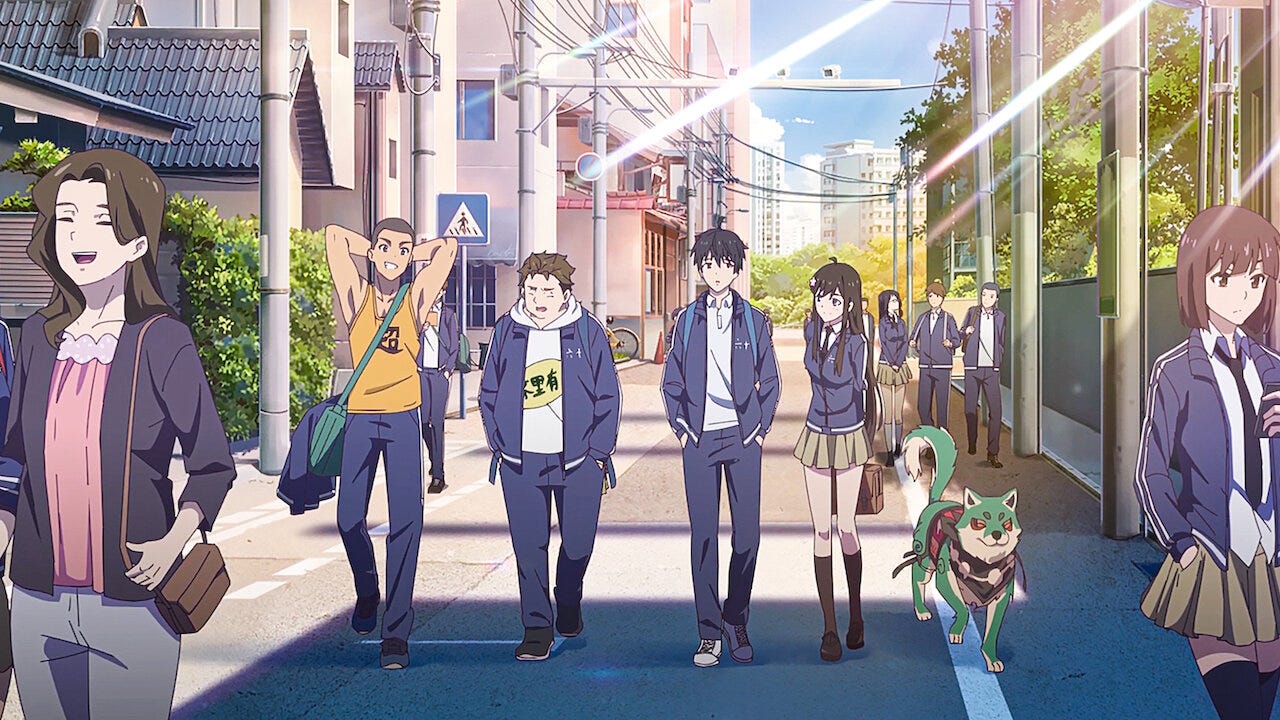Stuff Worth Knowing for the Week of May 1, 2023
The WGA strike begins, the "Godfather of AI" quits Google, and Xbox boss Phil Spencer gives up the console war.
Welcome back to Stuff Worth Knowing! Each week, I'll round up news related to tech, video games, film, television, anime, and more. I’ll probably also start using Substack for more short-form thoughts once Substack Notes launches. At the same time, I’m going to be using my Patreon, SavePhile, more often.
Film, Television, and Streaming 🎞️
The Writers Strike Begins
This is the biggest story of the week. As I said last week, The Writers Guild of America (WGA) was in the middle of contract negotiations with the Alliance of Motion Picture and Television Producers (AMPTP), which represents the studios. The WGA is looking for increased salaries, better residuals for successful shows, longer writers rooms, more transparency on streaming ratings, and strong safeguards around the use of AI. The existing contract ended on May 1 and with no new deal made, the WGA went on strike.
The strike means an immediate work stoppage on a number of shows and films. Hollywood is a union town, so nearly every writer is in the WGA. The effects were immediate for live television with Saturday Night Live and late night shows like Late Show With Stephen Colbert, Tonight Show Starring Jimmy Fallon, and The Daily Show all shutting down for the foreseeable future. The shows will instead air repeats.
Other television shows and films are grappling with the situation as well. One major issue is the prevalence of writer-producers and showrunners: these are writers for the show who also operate as production staff. Some shows are going without those staff members. Take The Lord of the Rings: The Rings of Power, which has decided to resume production on its second season without the input of executive producers J.D. Payne and Patrick McKay, who are also writers on the show.
Disney, Warner Bros. Discovery, and Paramount are going a different route, with both studios warning showrunners that they still have to do all their other duties on their respective productions. “If you are a WGA member, HBO/HBO Max respects your membership in the WGA, and we will not do anything to place you in jeopardy of WGA rules,” said Warner Bros. Discovery in a letter obtained by Deadline. “However, we believe certain services, such as participating in the cast process and/or contributing to non-writing production, and post-production work are clear examples of non-WGA required services that should continue to be rendered during this time.”
“Under the National Labor Relations Act, the WGA is not permitted to interfere with an employer’s right to designate employees to perform certain supervisory functions,” the letter continued. “If you fail to provide contracted services due to the strike, HBO/HBO Max will not be obliged to continue your salary. Further, if production is interrupted by the strike, even if you offer to continue to work, HBO/HBO Max will not be obliged to continue your salary, nor the salary of the cast and crew.”
The letters from Disney subsidiary ABC and Paramount’s CBS Studios were much the same. One insider told Deadline that all studios with the exception of Netflix sent a similar letter, or are planning to in the future. On the other end, some productions have stalled in the face of the strike. Marvel Studios paused production on Blade, which just hired True Detective creator Nic Pizzolatto to rewrite its script.
You should also expect a number of ongoing shows on the bubble to get canceled. CBS canceled S.W.A.T. despite good ratings and series creator Shawn Ryan delivering Netflix one of its biggest recent hits with The Night Agent. Apparently, the show itself is quite expensive.
Why It's Worth Knowing: This is the big game. Writers are fighting for important guidelines and improvements in their work environments, especially with the rise in alternate practices because of streaming. (Note, these are generally Netflix practices, which the other studios are chasing.) While the studios are playing hard ball at the moment, the major issue is the other guild contracts that are ending soon.
The Directors Guild of America (DGA) begins its contract negotiations on May 10, and its contract ends on June 30. The Screen Actors Guild - American Federation of Television and Radio Artists (SAG-AFTRA) comes to the table on June 7 and its contract also expires on June 30. The WGA strike gives both of the other guilds more leverage in their contract talks, but it’s also unlikely the guilds will double-cross each other. In fact, SAG-AFTRA National Executive Director and chief negotiator Duncan Crabtree-Ireland told WGA members that his union was “in the same boat together”.
Ed Sheeran Wins Copyright Music Case
I didn’t know where to put this, but it’s important news for the week. On Thursday, a jury found in favor of musician Ed Sheeran, stating that his 2014 song “Thinking Out Loud” didn’t infringe on the copyright of Marvin Gaye’s “Let’s Get It On”.
The plaintiffs in the case, the family of Marvin Gaye co-writer Ed Townsend, stated that Sheeran’s song used a chord pattern present in “Let’s Get it On”. For his part, Sheeran didn’t deny that the chords were similar, but he contended the chord pattern existed long before Gaye’s song.
“I am obviously very happy with the outcome of the case,” Mr. Sheeran said in a statement after the verdict, according to The New York Times. “At the same time, I am unbelievably frustrated that baseless claims like this are allowed to go to court at all. We have spent the last eight years talking about two songs with dramatically different lyrics, melodies and four chords which are also different and used by songwriters every day, all over the world. These chords are common building blocks which were used to create music long before ‘Let’s Get It On’ was written and will be used to make music long after we are all gone.”
Why It's Worth Knowing: For the music industry, this case has been one that’s been watched carefully. Especially for newer artists, there’s the worry about falling prey to one of these copyright lawsuits. The decision in a previous Gaye-related lawsuit, which found that Robin Thicke’s “Blurred Line” infringed on Gaye’s “Got to Give It Up”, had many songwriters feeling some anxiety. When does a chord progression become copyrightable?
Two cases in 2019 and 2020, involving Led Zeppelin and Katy Perry respectively, moved the bar back towards something the industry was comfortable with. This decision this week firmly sits on the same side as those two cases, raising the legal standard for proving plagiarism.
Yellowstone Is Ending, Long Live Yellowstone
This week, Paramount announced that one of its hit shows, Yellowstone, would be ending with the upcoming second half of the fifth season. The show will be followed by a sequel series that will air in December, following Yellowstone’s end. Apparently, part of the issue with the current series are conflicts between series creator Taylor Sheridan and star Kevin Costner. A report from February said Costner was hoping to pull back on his commitment to the series.
The sequel series will likely pick up right where Yellowstone ended. Matthew McConaughey is reportedly in talks to star in the new series. It’s unclear how much of the original cast will join him in the sequel.
Why It's Worth Knowing: For Paramount, Yellowstone ending is a big win. Due to existing contracts, the show is streaming exclusively on NBCUniversal’s Peacock, rather than Paramount+. With a brand-new show, Paramount gets to bring one of its biggest shows back home. That’s great news, especially given that Paramount+ represented a $511 million loss for the company in the first quarter of 2023. Of course, Yellowstone and its sibling shows are costly affairs, according to a recent report from The Walt Street Journal. Sheridan makes sure that his universe of shows utilize his personal Texas ranch, including his horses and livestock, meaning he makes money on two sides of every production.
Jim Lee Becomes President of DC Entertainment
It’s been a long, slow road for Jim Lee. The Korean-American artist was one of Marvel’s hottest talents in the 90s. That clout allowed him to break away from Marvel to form Image Comics with other celebrity artists like Rob Liefeld and Todd MacFarlane. In 1998, Lee sold his Wildstorm Productions imprint to DC Comics, moving up to co-publisher of DC Comics with Dan DiDio in 2010.
While continuing to contribute to creative projects at DC Comics, Lee became DC’s chief creative officer, following the departure of previous CCO Geoff Johns and DC Entertainment boss Diane Nelson. Dan DiDio would depart the company in 2020, leaving Lee as the sole publisher of DC Comics, while still retaining his CCO role.
This week, Lee was promoted to President of DC Comics, a move that feels like giving him the official title for work he’s already doing. He will continue to be the publisher of the comics line and handle translating DC characters to other media. He will continue to report to Pam Lifford, President of Global Brands, Franchises, and Experiences at Warner Bros. Discovery.
Still, it’s great to see Lee continue to succeed and it’s always great to have a former creative in an executive role, because he understands the needs of creatives.
Tech ⌨️
FTC Looking For Ban Meta’s Use Of Minors’ Data
On Wednesday, The Federal Trade Commission (FTC) proposed an expansion to its 2020 privacy order involving Facebook. That order was a modification of a previous 2012 order, alleging that Facebook violated user privacy. Part of the latest expansion is aimed squarely at young users, stating that Facebook has failed to comply with previous orders in regards to privacy.
The proposed changes would prohibit Meta from profiting on any data it collects from users under the age of 18. Instead, such data could only be acquired for security purposes, and even after those users turn 18, it wants to prohibit the selling of those users’ data. The FTC is also looking at limits on the use of facial recognition technology, a pause on new product launches without FTC compliance checks, and a strengthening of existing requirements in the privacy order.
Why It's Worth Knowing: The 2020 privacy order came alongside a $5 billion fine that Facebook had to pay. This new expansion is less costly for Meta, but alleges continued violations of previous orders and could hamstring Meta’s attempts to move into other markets, like AI. The company has 30 days to challenge the expansion, but it’s unlikely to win such a challenge given past actions.
Google Enables The Use of Passkeys For Its Accounts
This week, Google allowed users to create and use passkeys for all Google Accounts. Passkeys are an alternate login security option using fingerprints, facial recognition, or local PIN codes. Most folks who use their smartphones or tablets likely already use such methods on those devices.
“Unlike passwords, passkeys can only exist on your devices. They cannot be written down or accidentally given to a bad actor. When you use a passkey to sign in to your Google Account, it proves to Google that you have access to your device and are able to unlock it. Together, this means that passkeys protect you against phishing and any accidental mishandling that passwords are prone to, such as being reused or exposed in a data breach,” said Google in its announcement post.
Google insists that users should not use passkeys for shared devices, as anyone who can unlock the device can access your account.
This Week In Twitter: Twitter Allows Key Infrastructure To Use API For Free
Twitter moved its API behind a paywall in order to find any sort of profit, but most companies aren’t willing to pay to access Twitter. Last week, The Metropolitan Transportation Authority (MTA) announced that it was no longer going to be using Twitter for rider updates. This news followed other services like the National Weather Service acknowledging that the API changes would affect automatic warnings and updates.
This week, Twitter once again reversed course, with the Twitter Dev account stating: “Verified gov or publicly owned services who tweet weather alerts, transport updates and emergency notifications may use the API, for these critical purposes, for free.” In response, the MTA said it was happy with the reversal and it was assessing “options for service alerts going forward.”
Otherwise, a pretty quiet week for Twitter!
AI 🤖
The New York Times Decides AI Is Sometimes Bad, Actually
Sometimes it can take a major outlet a while to grapple with the full scope of new technology. This week, The New York Times seemingly decided that AI might have a few problems. A pair of stories on the emerging tech came on Monday. The first story was an interview with Geoffrey Hinton, machine learning pioneer and major figure in Google’s deep learning artificial intelligence research team.
Hinton announced he was leaving Google this month, citing his concerns with how the company was handling AI tech. In the NYT interview, he stated that Google was acting as a “proper steward” for the technology, but trying to compete with Microsoft’s integration of OpenAI’s GPT has caused Google to leave that caution behind. (This is something I acknowledged in a previous Stuff Worth Knowing.)
“It is hard to see how you can prevent the bad actors from using it for bad things,” he said. “I don’t think they should scale this up more until they have understood whether they can control it.”
At the same time, the New York Times posted a second story all about AI hallucinations. See, AI doesn’t understand context, so it’s prone to outright lying if you’re trying to get factual information from it. The NYT noted that ChatGPT said the first article from the outlet regarding AI came in 1956, but that article never existed. Oops.
“If you don’t know an answer to a question already, I would not give the question to one of these systems,” said Subbarao Kambhampati, a professor and researcher of artificial intelligence at Arizona State University told the NYT. Microsoft stated that the current set of chatbots are “built to be persuasive, not truthful,” leading one to wonder why they insist on making it a part of Bing search.
Both stories were a stark contrast to the NYT’s look at Bing’s ChatGPT-powered features in February, where the writer expressed fear at the chatbot stating it wanted to be alive.
Why It's Worth Knowing: While everyone is down on the media these days, one cannot miss how it helps form overall consensus. If you repeat a statement enough times, it becomes fact. I think a major outlet like the NYT taking a more measured, skeptical look at AI is something that’s worthwhile.
Microsoft Is Helping AMD With Its AI Chips
They say competition creates strange bedfellows, but I think these bedfellows aren’t all that strange. (It’s actually “politics creates strange bedfellows,” but stick with me here.) According to Bloomberg, Microsoft is working with AMD on the latter’s efforts to make better artificial intelligence processors.
AMD has the upcoming MI300 chip for data centers, but the company says that the chip could work for AI workloads as well. At the same time, AMD is reportedly helping Microsoft with its own AI chips, code-named Athena, though a Microsoft spokesperson denied AMD’s involvement. Both companies are collaborating because Nvidia is currently ruling the roost with an 80% market share in AI processors. Sometimes you gotta work together to take the market leader down a peg.
Video Games 🎮
Xbox Boss Phil Spencer Admits That It Can’t Out-Console Sony And Nintendo
It’s not hard to look at Microsoft’s Xbox business and see it struggling. While Microsoft has acquired a number of developers, its overall output is far below its competitors first- and second-party offerings. Halo Infinite has died on the vine and 343 Industries is undergoing an executive talent drain. Redfall launched to terrible reviews. And the company has so many announced titles that simply haven’t shown up in recent years, including Fable, Perfect Dark, State of Decay 3, and Everwild.
Xbox boss Phil Spencer went on Kinda Funny Games’ XCast this week to talk about the state of Xbox. His answers were a bit odd, as he needed to acknowledge the division’s faults, while also not appearing too strong to regulators. Additionally, he had to address Redfall’s state in a manner that looked authentic, while also assuring folks near-future games like Starfield are going to be better.
The interesting thing is how defeated Spencer sounded. "We're not in the business of out-consoling Sony or out-consoling Nintendo. There isn't really a great solution or win for us,” he said. “I see it out there, I see commentary that if you just build great games, everything would turn around. It's just not true that if we go off and build great games, all of a sudden you're going to see console share shift in some dramatic way. We lost the worst generation to lose in the Xbox One generation, where everybody built their digital library of games.”
That’s not the kind of talk that establishes faith in Xbox as a platform. Yes, the company is trying something new with Xbox Game Pass, which shifts the focus slightly, but having great games is still a part of Game Pass’ overall value proposition. I have trouble seeing how having Xbox answers to The Legend of Zelda: Tears of the Kingdom or Marvel’s Spider-Man 2 isn’t a boon to Xbox Game Pass, so ceding that ground doesn’t feel like the right direction for the division.
“But I know some people want to hold us up as being a better green version of what the blue guys do, and I'm just going to say there's not a win for Xbox in staying in the wake of somebody else. We have to go off and do our own thing with Game Pass, with the stuff we do with Xcloud, and the way we build our games,” Spencer added.
Why It's Worth Knowing: Competition breeds innovation. Companies are more willing to engage consumers with better products and services when they feel that those customers can be taken from them by rivals. We should want Xbox to stand in parity with Sony and Nintendo, because that makes everyone perform better. Many of the statements from Spencer feel like Xbox giving up, even if that wasn’t entirely the tenor of the interview.
Discord Switching To Unique Alphanumeric Usernames
Since its inception, Discord has operated with an interesting user account system: a name followed by a four-digit numeric tag. This week, the company announced that it will be transitioning to unique names for users. In its example, a user switches from “PhiBi#8936” to “@phibiscool”.
Discord co-founder Stanislav Vishnevskiy explained that the original purpose behind the system was to prevent users from ever seeing a “Your Desired Username is Taken” message. Now however, Discord feels that “current usernames can often be too complicated or obscure for people to remember and share easily.” Instead, usernames will now work like they do on Twitter or Instagram.
The new usernames will be rolled out in a priority system. Owners of partner and verified servers come first, then users based on when they registered for Discord in the first place. Nitro subscribers will also be given early access.
Some users have expressed issues with the new system. For one, users are currently private unless you have their exact Discord username. Under the new system, users with familiar account names can be easily found. Others noted it also made account hacks have lower stakes, since making a new account was relatively easy. Some even talked about the new system leading to a rise in account impersonation.
Why It's Worth Knowing: The social media singularity continues. Every social media service must be like every other social media service. Bleh.
Layoffs 👷
Unity Lays Off 600 Employees, Or 8% of Workforce
In a filing with the U.S. Securities and Exchange Commission, Unity confirmed that it was laying off 600 employees, amounting to 8% of the current workforce. This follows the 300 employees laid off back in January of this year. According to The Wall Street Journal, Unity will also reduce its number of global offices from 58 to 30.
For its last earnings report, Unity announced $451 million in revenue, up 43% year-over-year. It also marked the company’s first profitable quarter in a while, with a scant $13 million in operating income. One wonders if buying Weta Digital for $1 billion in cash and $625 million in stock back in 2021 wasn’t the best move.
Vice Filing For Bankruptcy
It’s not layoffs—that happened last week—but according to The New York Times, Vice is nearing bankruptcy. The report states that the bankruptcy filing could drop in the next few weeks. Back in 2017, Vice was “worth” $5.7 billion, but apparently the outlet is struggling to find a buyer now. Last week saw the closure of Waypoint, the video game reporting division, and Vice World News, the division focused on war and human rights abuses.
On My Mind 🧠
Madhouse and MAPPA Founder Believes Chinese Animation Can Overtake Anime: In an interview with The Japan Times (translation via Crunchyroll), Madhouse and MAPPA founder Masao Maruyama believes that Chinese animation can overtake its Japanese counterpart if the former is given more opportunities to shine.
In Japan, people are no longer trained in animation. The only reason China hasn’t quite caught up with Japan yet is because of a bunch of restrictions imposed on free expression there. If more freedom is unleashed, Japan will be overtaken in no time.
You can find Chinese animation on a number of platforms recently, including the impressive Hitori no Shita: The Outcast, Heavens Official’s Blessing, Link Click, and The Daily Life of the Immortal King on Crunchyroll. You can also find CG animated films like Green Snake and Nezha Reborn on Netflix.









Dang this is a pretty good newsletter for the kinds of information I'm interested in. Thanks for sharing.